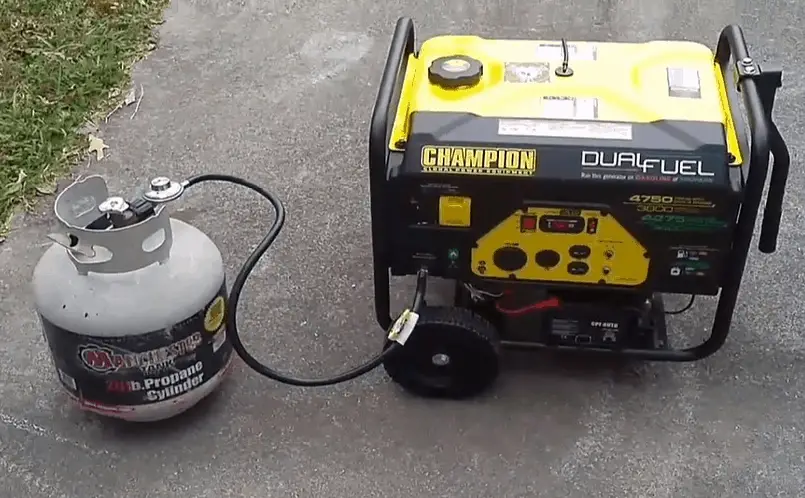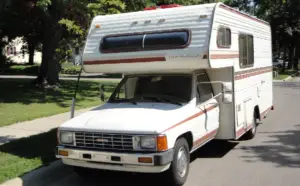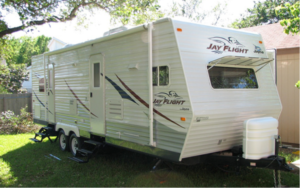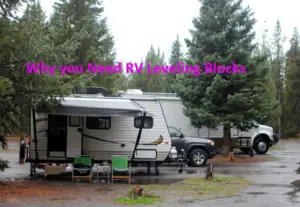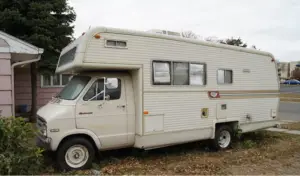The freedom that we enjoy while traveling or living in a RV is much attributed to the RV generator that is on board.
But, RV generator maintenance is critical if you want that uninterrupted power supply.
Generator in RV makes life enjoyable because it simulates the comfort that we have in our home in terms of the operation of electrical appliances and the charging of our batteries.
RV generator is your friend while boondocking and even at RV campground. But like our cars, they need regular maintenance to function well for a long time.
So, how do you maintain an RV Generator?
This detailed guide will provide all tips to care and maintain generator in your RV.
MAINTAINING THE RV GENERATOR
1. Operate the generator UNDER LOAD once in a while.
If you have a 4000 watt generator like cummins onan, your under load exercise should be 50 percent capacity or 2000 watts.
Examples of 2000 watt capacity appliances are: two roof air conditioners, or two electric heaters, or a pair of an electric heater and an electric water heater.
2. Check the hour meter.
When you check or change the oil level or inspect the air filter, it is important to keep records in a log book for the run hours through the hour meter which should be a “must” feature of your generator.
Take note of the specific hours when the generator will require service or repairs. This is very important because you might be surprised that 500 hours have passed you by.
3. Complete an overall visual inspection every 300 run hours.
This might be a tedious task, but it beats the scenario of being somewhere in a remote place when your generator breaks down abruptly and you regret not doing the visual inspection. This activity includes removing a panel to gain visual access.
Fuel filters are changed every 400 to 500 hours; valves need adjustment every 800 hours; slip rings and brushes every every 500 hours.
Check the exhaust system, which includes the brackets and spark arrestor.
4. Replace coolant every two years
If you have a diesel generator, the water should be drained from fuel system annually or every 100 hours run time, whichever comes first. The coolant, thermostat, and radiator caps are replaced every two years.
5. Check owner’s manual for suggested scheduled maintenance.
6. Detect for fuel leaks
All RV generators get their fuel from on board tanks.
So it is important to check the rubber fuel supply lines once a year for cracks or other types of damage. Again the log book records are important.
Fuel leaks, especially far underneath the RV or travel trailer where it is hard to locate, are dangerous, if undetected.
7. Change Oil and Air filter every 100-150 hours
Most gas and propane generators need to have oil and air filter change every 100 to 150 hours, or once a year, whichever comes first.
Some generators do not have oil filters and others require proper types of filter because it may have a built in check valve.
8. Use Manufacturer recommended oil
All generators use standard automotive oil, but most RV generator manufacturers recommend synthetic oil.
Every model vary according to viscosity and climate temperature requirements, so check the owner’s manual for graphs and charts that list specific parameters.
It is recommended that you follow the instructions.
9. Prevent build up in carburetor
FUEL STABILIZERS work wonders in preventing varnish build up in a generator’s carburetor in the event of EXTENDED STORAGE.
Varnish is the result of old fuel collecting in the jets or needles, and varnish decreases their function.
Signs that the carburetor is in trouble are when the generator experiences problems in starting and surging; and also abnormally low high or low run speeds.
If the varnish build up is too much, the carburetor has either to be rebuilt or replaced. Most motorhomes are designed wherein their generators will stop operating when the fuel tank is 75 percent empty.
10. Keep an eye on voltage
Voltage and hertz are commonly overlooked maintenance factors. Buy a simple meter that can measure voltage and hertz.
If the read out is outside the normal limits, avoid using unnecessary electric or electronic devices until you have this problem serviced.
WINTERIZING YOUR RV GENERATOR
If you are resting your RV for an extended period of time for whatever reason, do not forget that you also have an RV generator to give attention to.
So that when it is time to drive your motorhome and operate your generator again, you will encounter no hitch.
RV Generator Fuel
It would be a wise move that one week prior to your plan to put your RV in hibernation, use up the fuel up to the point that it is nearly empty.
The idea is to fill up the RV’s tank with fresh fuel prior to its rest. A fuel tank that is partially filled up will allow condensation to form which adds water to the fuel.
It can also lead to rusting and other kinds of nasty issues which you do not want to be confronted with.
Read : How much Fuel do RV generators use?
For diesel fueled RV owners, if you expect the temperature to go below freezing point, fill ‘er tank with a winter grade fuel.
Gassoline powered generators should use regular unleaded or ethanol blend not exceeding 10 percent ethanol. As previously mentioned, if possible, before filling up, the tank should be near empty so that fresh gas is what’s inside, prior to hibernation of the RV, and in effect, its generator too.
For liquid propane (LP) powered generators, prior to extended vacation of the RV, use clean, HD-5 grade liquid propane in a mixture of at least 90 percent propane.
Dealing with Residue in carburetor
FUEL STABILIZERS and preservatives for both diesel and gasoline fuel tanks are your best friends during the prolonged vacation of your travel trailer or camper.
Without stabilizers, in a gasoline tank, varnish will appear. And will Produce a gummy residue that can clog the carburetor, fuel filter, and fuel pump.
Diesel engines will not have varnish, but without stabilizers, biological growth like algae and gel will appear in cold weather. This will diminish generator performance.
Run the generator with UNDER LOAD
Under load means lower than full capacity, ideally 50 percent. Run it for 30 minutes plus 2 minutes for each foot of fuel line (approx one hour). This is to ensure the STABILIZER runs through the whole line and the engine components.
Change the oil and the filter to winterize your generator
This prevents the accumulation of acids which corrode bearings inside the engine. Ensure that you use original parts, never replacement parts or you will be sorry.
If you have a gasoline powered generator, it is recommended to REMOVE THE SPARK PLUG. And then Spray a fogging spray to reduce rust and condensation in the cylinder.
Make sure all connections – cables, wires, and other connections are tight and protected.
Check if you need to clean battery cable connections and to lubricate linkage points.Disconnect the battery.
Disconnect the ground terminal to the generator to avoid battery drain or accidental surge back from the main system.
HOW TO CHANGE OIL IN RV GENERATOR
Changing oil is one of the important tasks in your RV generator maintenance checklist. Its easy and also manufacturer like onan recommend doing it every 100 hours of use. This can definitely be done you yourself.
If you talk in terms of months or days, this can be done once every year. You will run that many hours for sure. So be sure to have this action items in your checklist.
A step-bystep guide on changing the oil in RV generator:
- First you need to drain the oil. Before going ahead with this, warm the generator a little bit by running for few minutes.
- Locate drain plug on the RV generator and remove it
- Next, drain all the oil in a oil drain pan
- later, screw back the drain plug using a screw wrench. Do not over tighten it. Make sure it fits in just what is needed.
- Once this is done, add new oil by removing the oil cover. Make sure you do not overfill it.
HOW OFTEN TO CHANGE OIL IN RV GENERATOR
Most RV generators like onan recommend that you change the oil after around 50 hours for the very first time.
After that, one can follow a schedule of 100 to 150 hours.
Apart from changing oil, its also recommended that oil filter be changed. Coolant also need to be at proper level so, need to refill it as well.
Air filter are also critical in keeping the RV generator running. The efficiency is also affected by air filter. The life of RV generator is much dependent on air filter. Therefore the manufacturer also suggest that air filter be replaced at around 500 hours of usage.
CHECK ON THE COOLING SYSTEM OF THE GENERATOR
Most RV generators are air cooled. Check once a month its air inlet system – any tube, vent, or, screen that allow outside air into the generator compartment.
If any debris blocks the cooling vents, the generator could overheat.
If in the case that your generator is liquid cooled, no foreign material like leaves should jam your radiator. And also check your radiator coolant level too.
LIFE SPAN OF RV GENERATOR
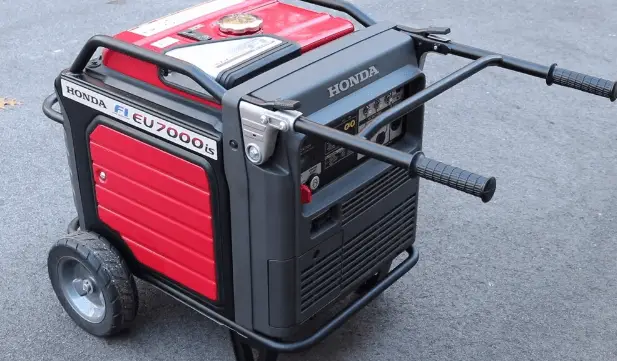
It all really depends on how well you followed the reminders above on how to maintain your generator. Also, If you have recorded your service records in a log book.
Read : How many Hours do RV Generators Last
Never entrust anything to memory.
There are generators which are still raring to keep on purring for another 10,000 hours after logging 20,000 hours or 20 years.
A standard RV generator like Cummins Onan or champion can last 15,000 to 20,000 hours and even more. In terms of years they can go on for 15-20 years or even more.
This is obviously dependent on the maintenance and servicing done on the generator.
The key here is maintenance.
Without maintenance the number of hours or years the RV generator can last will definitely reduce.
Doing self maintenance is one thing but going for professional servicing of the generator will make it perfect.
So, how do you increase life of your RV generator? You can try all things like changing oil, oil filters and all sorts of things.
But, its also true that a good approach is to get it serviced by professional at-least once a year. A professional can understand and do a lot good to your RV generator then what you can yourself.
The average safe length of time you can run a portable RV generator is 8-20 hours (depending on the model). Built-in RV generators can safely run for days on end, as long as you maintain them properly. Depending on the generator type, you can keep them running for anywhere from just a couple of hours to several days.
HOW LONG CAN YOU RUN RV GENERATOR
On an average a portable generator in RV can run for 10-18 hours continuously. But, a lot depends on the brand that you have. Some of the great brands of portable RV generator includes Honda, Generac,Westinghouse, Yamaha, Champion and others.
An on built generator in RV ike cummins onan can be safely run for more than 1 day continously.
There are lo factors that limits the number of hours a RV generator can be used. Some of these factros include below.
RV generator Life rating : Brands normal tell about the number of hours of operation for a lifetime. Than can range from few thousand hours or more. This is mentioned due to the components that are used. Parts used will have some life and thus the overall hours if operation will also be limited by its quality.
Fuel refiling : you will have to refill the generator with fuel once it come below the required level.
Running a generator all night in RV has been discussed by many. Whether you should do it or not is up to you. But, if you are running it then make sure you have CO detector with good battery on it.
Another problem with all night generator could be noise. If it makes noise then you will have hard time sleeping.
Running the generator while driving : it is okay to run the generator while driving your RV. Many people do it and its safe to do.
There is one thing though. If you have a propane generator then it may not be safe to run it while driving. In case of gasoline you need to make sure you have enough in the RV as it will use the common source.
Most people run generator while driving to power their RV air conditioner.
REDUCING THE NOISE FROM YOUR RV GENERATOR
1. Noise reduction panels. Much like acoustic walls in music rooms and theaters. They are made of foam and absorb the sound from the generator.
2. Fiberglass box. Fit the generator inside this, but make sure there is lots of space between the box and the generator. Make sure the gen can breathe while in operation.
3. Rubber legs. Installing these under the generator cushion and thereby diminish the vibrating noise the gen makes.
Here is the detail guide on reducing rv generator noise, that has few additional methods with all the details.
Read : Where to add generator to a travel trailer.
MAINTENANCE COST
The rule of thumb here is, if you do it yourself, and you don’t mind being greasy, you will save $150 on labor. This will include replacing the oil, air, and fuel filters, checking on the generator exhaust, and changing the oil (done approx once a year).
An built-in generator like Cummins onan will need servicing annually and that cost be around $200-$300. In case you have portable generator then the cost will be lesser at around $100-$200
RV generators cost a lot and thus obviously come with good warranty. Cummins Onan generator comes with 3 years warranty, most other manufacturer also provide similar warranty. Portable generators like Honda, Generac also cover generators under warranty that can be more than 3 years.
While normal servicing will cost you fixed amount a repair may not be same. It will totally depend on whats wrong with the generator and what part need to be replaced.
Some of the things that may fail include, Carburetor, voltage regulator, rotor and stator, transfer switch.
Most of this can be replaced at a cost of between $50-$1200.
At the earlier stage you may encounter such failures but at later stage you may have to do this. It all depends on the brand as well. A better brand will give you many years of usage without any major failures.
So, check your budget and your mechanical inclinations.
RV GENERATOR ISSUES
So, what kind of issues one can face in RV generator? While a normal maintenance will include changing oil, filter and so. RV generator can have issues with below aspects and that’s when a repair or replacement will be needed.
- Cooling issues
- Lubrication
- Filters not working
- Air combustion
- Fuel tank, and lines
- Transfer switch
- Starting
TROUBLESHOOT RV GENERATOR PROBLEMS ON YOUR OWN
In most cases you should be able to fix the RV generator problems on your own unless there is major failure. A old generator or ill maintained generator will likely have major issues, in which case a technician will be better handle it.
Here are some common issue that we face with RV generators and how to troubleshoot them.
1. Generator wont start
In most cases this can be due to low fuel. This may seem silly but most of us are in this situation where in the RV generator does not have sufficient fuel to itself. This is an obvious one to check first before jumping on to check anything else.
RV Generator not starting can also be linked to other minor and major issue like below,
- Oil Sensor issues
- Clogged carburator
- Spark plug debris
- Chocked air filter
- low engine oil
Read : RV Generator wont start step-step guide to troubleshoot
2. RV Generator runs but does not provide power
This is another common one where in generator runs but no power in the unit. The first thing you need to do in this case is refer the generator manual. Its better to follow whats written in there then do anything else.
If you do not have a manual then start by checking as below.
Generator circuit breaker Tripped: First check if there is circuit breaker on the generator, it will look similar to one we at home. Check if it is tripped, if it is then reset it. With this it should start providing the power.
RV circuit breaker Tripped : Next, if it wasn’t the generator circuit breaker that was tripped then it can be the RVs circuit breaker. Check in RV electrical compartment to locate the circuit breaker. See if it was tripped and reset it. Later start the generator to see the power being supplied now.
Grounding Issue or Short Circuit : If, the circuit breaker trips again even after resetting then it will be an issue with the grounding or there can be short circuit. In this case better to take the RV to professional technician.
Transfer Switch Gone bad : If you were not able to locate the tripped circuit breaker then its a problem with the transfer switch. This can be troubleshooted by a qualified technician.
IN CONCLUSION
RV camping at campgrounds or boondocking will definitely need a good generator. Keeping the generator well maintained is must if you don’t want to face issue at unexpected times. Regular servicing as per manufacturer recommendation is safe way to save on repair or replacements costs.

